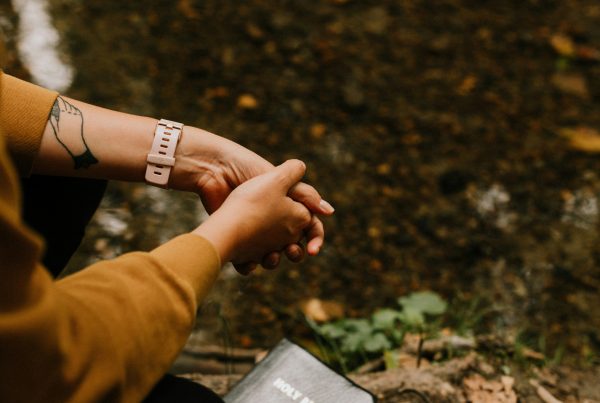The upcoming referendum raises opportunities for us to reflect on who we are as people. Importantly, who God made us. As we’re thinking through our vote and talking with others, it’s worth remembering that bearing God’s image means we must uphold two truths about humanity:
- Our connection to others
- The delight of difference
To reflect on just the first truth (leaving the second point to another blog post): Humanity’s reflection of God means we are unavoidably & deeply connected to others.
To be a human, ‘made in the image of God’, means ‘no man is an island’. In Genesis 1:27, God makes humanity like him: a complex unity. ‘God created man (singular) in His own image’. Just as there is one God, there is one humanity. ‘In the image of God He created them’. The true God is 3 persons – hinted at in verses 1-2 with ‘God, the Word and His Spirit’; and the ‘original’ word for God being plural, with a singular verb. We too are a complex unity: One humanity, male and female. At our base level we aren’t ‘individuals’, but ‘persons in relationship’ – like the God who is Father, Son and Spirit. Image bearing isn’t about only one type of relationship: marriage (though it does shape it). It speaks to how all humanity is both distinctive and dependent. We aren’t God’s image ‘alone’. We image Him in connection to others.
To be connected to others means we all share in other’s wins and failures.
‘One aspect of our identities is collective. We are who we are, each of us, in part by virtue of who we are together.’
Oliver O’Donovan
We share the wins. We benefit from what we do together. One person alone can’t build a Boeing 747 or a smart phone. The complexity of thought, production and materials is beyond any single person to build them entirely ‘from scratch’. In fact, there’s very little we do in a day ‘achieved alone’. The morning routine of a shower, getting dressed and eating breakfast point to a variety of industries and the effort of thousands of people’s labour. We enjoy abundant blessings that we couldn’t create alone. All life is communal – sharing in other’s wins.
We also share the failures. Even our moral and spiritual failures are communal. Guilt is collective in the people of God. As Christ’s body, the sin of others impacts every church member (2 Cor 11:29). Ezra claims the guilt of His people, as his own – rather than distance himself (Ezra 9). He understands that ‘community’ means the guilt of any, is shared by all.
Collective guilt spans across generations in God’s eyes. Daniel leads the people in a prayer of repentance where he acknowledges the sins of his generation and that of their fathers (Daniel 9).
But, communal failure is not only from our connection as ‘the saved’. God accounts for our national identities. While Israel enjoyed a unique relationship with God, His engagement with people ‘collectively’ is not restricted to Israel. In Jonah, the Ninevites were warned that God was coming to judge and overturn their city. Their bold repentance saw God respond in mercy (as Jonah always feared He would!). In Obadiah, the Edomites are held responsible as a nation for their historical and present treatment of God’s people. In Genesis 15, God delays His judgement of the Canaanites for 400 years until their sin has reached a certain level of offence. The Bible’s communal thinking is broader than our identification with the living – God sees our unity with our ancestors and the historical action of your ‘people and nation’. As we share in the blessings of community, we bear our community’s guilt.
The referendum is not just an opportunity to look again at our constitution. It’s a chance for us to look afresh at who we are: God’s image; ‘persons-in-relationship’; deeply connected to others.
In Him,
Mark Smith
Senior Minister | 8am, 9:45am & 7pm






